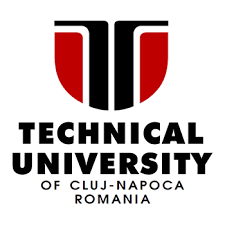| Subject | Rank |
|---|---|
Mathematics | 151-200 |


One of the oldest and most respected institutions of technical education in Romania is the Cluj Polytechnic Institute, which has a proud history or more than 100 years. Founded in 1920 as the Industrial College of Cluj-Napoca, the institute underwent several reorganizations before being established as the Cluj Polytechnic Institute in 1953. In 1992 the Polytechnic Institute renamed the Technical University of Cluj-Napoca. Since 2012, the Technical University of Cluj-Napoca (TUCN) has had twelve faculties following the merger with the North University of Baia-Mare, which became the North University Center in Baia-Mare. Being connected to the international demands of current times and characterized by dynamism in spirit and action, the Technical University of Cluj-Napoca has always been among those academic institutions that lead to prosperity and progress in society. Since 2007 it has been a member of the Francophone Universities Association and since 2011 was recognised as one of Romania’s 12 Advanced Research and Education Universities. In 2018 the Romanian Agency for Quality Assurance in Higher Education awarded the institution with the "Highest Degree of Trust in HE". In 2019 TUCN received the status of international university of excellence (4 stars) following the external audit conducted by QS Stars Rating System (UK). The university has the special chance to be a member of The European University of Technology EUt+ (https://univ-tech.eu/) ,founded in 2020 whose objective is to design the future of university education at the European level by implementing new collaboration models. Currently, the Technical University of Cluj-Napoca represents a pole of academic and scientific excellence, unanimously recognized regionally, nationally and internationally. TUCN's ambition and future target is to become a university strongly anchored in the European education, research, innovation and digitization area by promoting and supporting performance and excellence in all fields of activity. In accordance with the TUCN charter, the university's mission is to develop value in people, processes and products. Thus, achieving a high-quality level of education and advanced scientific research in a national and international environment will be pursued, responding to the needs of the individual's professional and social development and society's progress. The educational offer, aligned to the Bologna system, includes more than 180 bachelor's and master's programs and 14 doctoral fields, as well as life-long learning programs. These cover a wide range of domains, from engineering, architecture, and fundamental sciences, to social sciences, humanities and arts. Due to its complex structure, TUCN has a strong regional dimension, which essentially differentiates it from other universities in Romania. Thus, TUCN is recognized as a highly qualified human resource provider for the Northwest region of Romania through its two main campuses (Cluj-Napoca and Baia Mare) and four subsidiaries (Alba Iulia, Bistrița, Satu Mare și Zalău), providing multiple links within the regional innovation and entrepreneurship ecosystem . The university's faculties provide study programs based on STEM education , for more than 19000 students in an interdisciplinary and applied approach. Bachelor's and Master's study programs in foreign languages, along with master's programs developed together with the socio-economic environment, are tools that provide graduates with skills with openness to the international space and solid specialized training, to join the community of the Technical University of Cluj-Napoca in the process of becoming a professional, whether it is through bachelor's, master's or doctorate studies, complemented by continuous improvement studies, to remain involved, determined and proactive in lifelong learning. From the beginning to the present, TUCN has prepared for the labour market with over 93,000 graduates for large regional, national and international companies. A constant challenge is the permanent adaptation of the curriculum to the demands and needs of the socio-economic environment. In this regard, the strong relations with several large companies have led to the development - in collaboration with these companies - of master's degree programs of great interest as (Bosch, Porsche, Google, Bitdefender). Students also participate in national and international scientific competitions and demonstrations in summer schools and inter-university exchanges (more than 500 agreements ) on various topics within student organizations. Research is, along with education, the main priority of the Technical University of Cluj-Napoca. In all faculties of the University,there are research structures, from groups and laboratories, to research centers and platforms, conducted in over 70 accredited research structures. The new research strategy aims at creating self-sustainable interdisciplinary and multidisciplinary structures capable of outstanding scientific achievements. Another important issue is the widespread interest in artificial intelligence in the socio-economic environment. On this line, an important initiative of TUCN is the establishment of the Artificial Intelligence Research Institute, which will represent a banner for research in the field at regional, national and international levels. The ambition of the university and the future target is to become a university strongly anchored in the European space of education, research, innovation and digitization. In order for the proposed vision to become a reality, one of UTCN's strategic objectives is to increase the competitiveness and attractiveness of the Technical University of Cluj-Napoca through the development and consolidation of its size and international orientation, seen as a catalyst for major changes and improvements in education, scientific research, innovation and artistic creation, to respond to contemporary national and global challenges.
